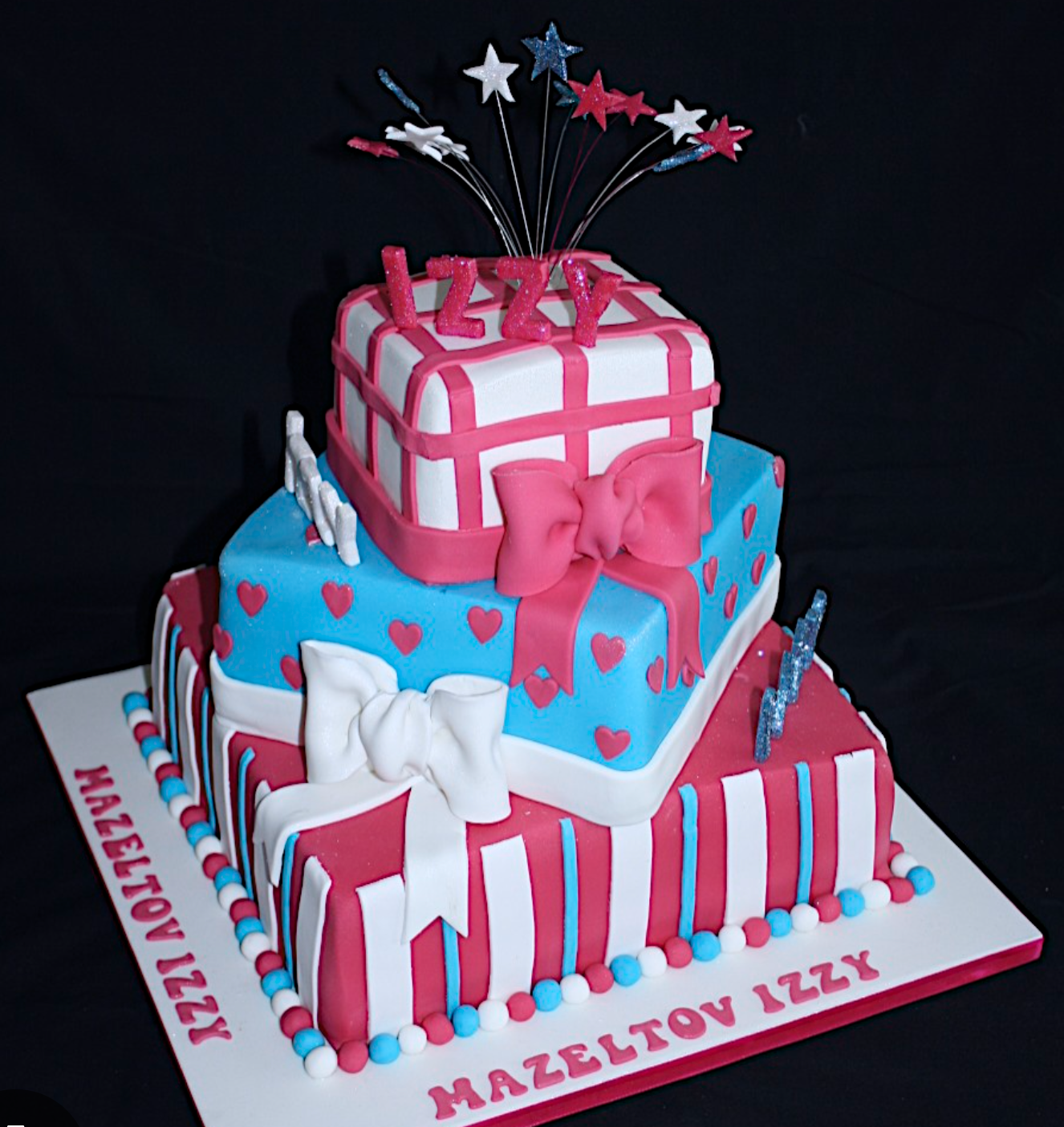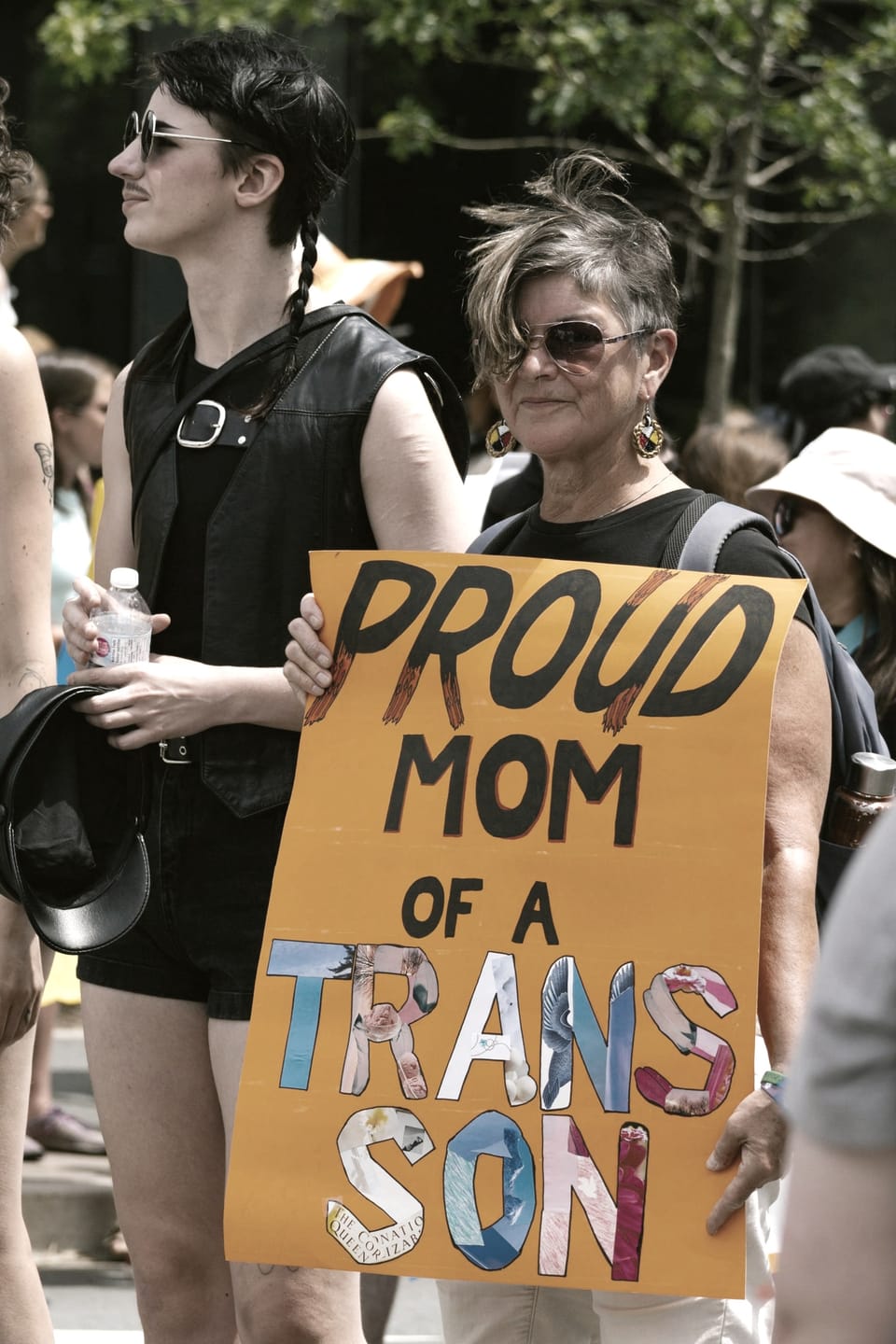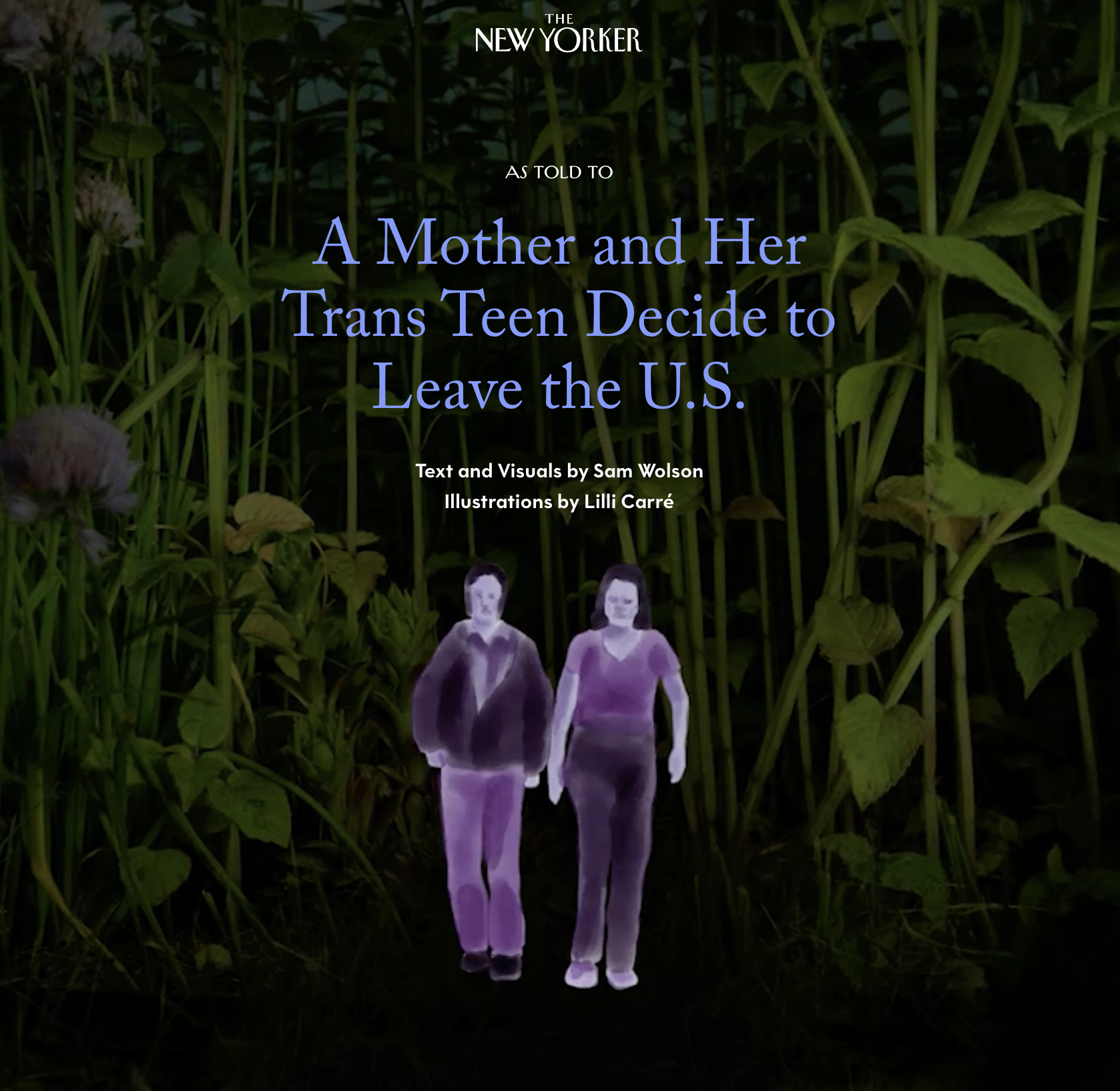Two Kinds of Stealth
My daughter doesn’t talk about being trans. I understand—I submerged my Jewishness for most of my life

When I was 13, I lost my bat mitzvah photos. This was fine. I had a bat mitzvah because my parents expected it and because every 7th grader at our midcentury concrete wreck of a temple did. Bat mitzvah, bar mitzvah—bat for daughter, bar for son (binary in those days, but no longer, as nonbinary kids can have a B-mitzvah).
I was the daughter of people to whom being Jewish was important but who never talked about why. As a young child, I played First Communion with my friends in the Polish Catholic neighborhood where we lived. And as a teen, I decided to disappear my Jewishness.
My Holocaust education at Hebrew school made me terrified. The Nazis would be back, I believed (if only I had been wrong about this), so I wanted there to be no evidence I was Jewish. I threw away every copy of my bat mitzvah invitation. To confirm that I successfully read from the Torah on that fall day in pre-internet time, you would have to talk to my cousins, who could describe the party afterward with the sundae bar, or dig through metal file cabinets in the temple office of the town where we lived. When the drugstore film developer lost the pictures of the day, I was so relieved I cried.
So it is lovely and ironic that my daughter is proudly Jewish. And maybe a little bit ironic that as a trans person, she is stealth.

Being stealth, if you are trans, means no one knows. Many trans people choose to be stealth. Teachers and other adults outside the family of trans teens may not be aware. Stealth kids may be out to just a few select friends.
Izzy is out to very few people, and she also generally declines to join trans and queer spaces. After she came out and I began educating myself on how to care for her, I assumed she would seek friends in LGBTQ groups. But I was wrong. Affinity groups are wonderful, but they can (subtly or not) pressure members who act or think outside of predetermined norms. At this point, compulsory queerness is not what my daughter is looking for. She prefers to figure out for herself who she is.
How deeply I get this.
I felt little connection in roomfuls of Jewish people I was “supposed” to be linked with. I sought myself on my own.
Before I go any further, a quick note that not every trans person has the stealth option. Transitioning over the border of gender isn’t always invisible or “pretty” in the ways we are schooled to want pretty to look like.
For people who have gone through puberty before transitioning, it is harder to “pass” as cisgender. And there are people who can’t pass for whatever reason (as well as plenty of people who don’t care about passing).
Everyday abyss
My Holocaust fears reignited after we adopted Izzy as a baby. Motherhood is wildly ordinary, but it is also a strange job full of jump scares. Whatever harm has come to you in your life or nearly did—an assault, a car accident, a broken leg, grandparents lost to war—comes back, mixing with headlines and movie scenes, the violences of your own country, and everyday abysses such as finding yourself and your Baby Björn next to a train track you could fall onto.
One day as infant Izzy napped, I called the Holocaust Memorial Museum in Washington and spoke to a researcher. I held the line for two hours as she searched for an answer to my question: how hard would it be, through DNA testing, to determine whether any of my daughter’s blood relatives died in one of the camps? I had to know because I wanted my child to get a break from this particular torment. I hoped for evidence that she would live free.
My question was not rational. There is no way to tell what part of the infinite human burden your child will or will not carry, no matter what is written on their DNA. But the woman on the line at the museum was kind, and she sensed that I needed a response. If she found me unhinged as a caller, she did not let on.
Illusion
Meredith Talusan, a trans journalist, compares being stealth to a snow globe. “I was aware that the reality I’d constructed for myself—of being an ordinary, cisgender woman in grad school—was in the end just an illusion, but that didn’t matter as long as I stayed within the confines of my snow globe and the actual, painful reality around that artificial utopia didn’t intrude.”
Snow globe also perfectly describes the state of grace I was obsessed with creating in which no Holocaust terror intruded. I hoped for my child to get a break—I just didn’t know what she would need a break from.
We are truly grateful to be a small part of your life on the web! Gender Defiant is reader supported. Will you help underwrite our expenses by upgrading to a paid subscription?
So fair play to Izzy and to any trans person who opts to be stealth. Not just to move the target off your back as vicious legal and physical threats pile up in this country, but also to avoid having to constantly talk about being trans. When you are 17, there are so many parts of yourself to discover! Gender is just one!
Still, when Izzy says “don’t talk about that here” in an empty restaurant at an early hour, if I have mentioned anything remotely gender-related, I think of great aunts lighting Friday night candles behind closed curtains and of the secret relationships of interracial couples before anti-miscegenation laws were overturned (shockingly recently) and of the threat of lost jobs if you came out as gay (until shockingly recently). Don’t dress that way, don’t speak with that accent, don’t walk like that....

And then I wonder about the line between stealth and hiding. At what point do you feel you have made yourself ordinary enough, invisible enough, passable enough, beneath suspicion enough.
As a teen, I tried not to look Jewish or be Jewish. But I also did not suspect that about 40 years later a context for Jewishness would find me, and I would discover a community I connect with that is entirely unlike my parents’ community. I thank my mom and dad, from far in the future, for going through the routine of that bat mitzvah. It left a link open.
Nat Vikitsreth, a trans therapist, writes of slowly coming “to love parts of myself that had been covered up by my trusted invisibility cloak” of living stealth. Maybe, like Vikitsreth, my daughter will find a way to be out on her own terms, and maybe that still includes being stealth—when she feels like it. Whether or not the country holds a place for trans people anytime soon, I am certain Izzy will make a place for herself, because she is stubborn and does not give up.
I hope she is able to be stealth as a choice, not as protection, because she is much more than her gender. For instance, she has the comic timing of Fran Drescher. A nice Jewish girl.
—N.R.


